Kurdish activist sentenced to death in Iran
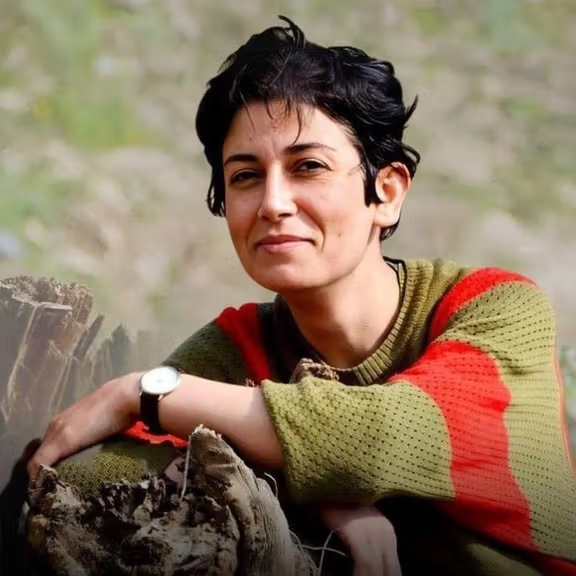
Iranian Kurdish political prisoner Pakhshan Azizi has been condemned to death on charges of armed rebellion, according to rights groups.

Iranian Kurdish political prisoner Pakhshan Azizi has been condemned to death on charges of armed rebellion, according to rights groups.
She is the second woman recently sentenced to death for "armed rebellion" just a month after labor activist Sharifeh Mohammadi faced similar allegations.
The Hengaw Human Rights Organization, a Kurdish advocacy group, also reported that Azizi had received a four-year prison term for membership in opposition groups. Her lawyers were notified of the sentence on Tuesday.
Azizi was arrested in Tehran last year and Hengaw reported that several of her family members were also detained but released after a few days.
The court issued the death sentence for Azizi while depriving her of access to legal counsel and family visits for several months, denying her fair and transparent legal proceedings, according to the rights group.
Hengaw recently published a letter from Azizi in which she recounted enduring repeated instances of torture and hanging during her detention. Furthermore, authorities have denied her the right to meet or contact her family for the past two weeks.
Previously, Azizi was arrested in 2009 during a protest by Kurdish students at Tehran University against the execution of political prisoners. After four months in detention, she was released on bail.
Human rights organizations have repeatedly condemned the severe torture inflicted on prisoners and the coerced confessions extracted from them.
The minority Kurds in Iran have faced extensive persecution since the establishment of the Islamic Republic. According to the rights group Hengaw, at least 266 prisoners were executed across Iran during the first half of 2024 as the country's execution spree continues. Among those executed were 72 Kurds.
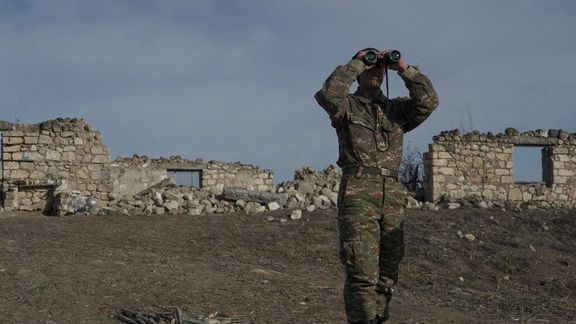
Iran and Armenia have signed a major arms deal worth $500 million, a source familiar with the situation told Iran International, in a move that could anger Azerbaijan as Tehran supplies Yerevan its infamous suicide drones.
Armenia and Azerbaijan have fought two major wars since the collapse of Soviet rule in the early 1990s, with Azerbaijan retaking large chunks of its territory in 2020. Its forces last year captured the region of Nagorno-Karabakh, the chief focus of the long-running conflict.
Iran has repeatedly warned that it will not tolerate any changes to international borders in the region.
The reported agreement has been broken up into several contracts and was signed in the past few months, according to the source, who is a senior military official in the Middle East. Iran International has not identified them for their protection.
Iran International has obtained an exclusive list of the military items Iran is set to supply Armenia. That includes drones such as Shahed 136, Shahed 129, Shahed 197, Mohajer, and air defense missile systems like 3rd Khordad, Majid, 15th Khordad, and Arman.
This deal has not been reported before. The foreign and defense ministries of Iran and Armenia did not respond to Iran International’s separate requests for comments.
Update: After the publication, Armenia's Ministry of Foreign Affairs did not deny the deal, in an official email response to Iran International. "Armenia is currently diversifying its security relations within the framework of international law. We don't have any further comment on this," said a spokesperson for the Ministry of Foreign Affairs of the Republic of Armenia.
Armenia's Foreign Affairs Ministry sent another email after that, referring Iran International to an article written in a local Armenian publication, where the country's Ministry of Defense dismissed our reporting as fictitious and false. Iran International reached out to Armenia's Defense Ministry and never received a response.
Farzin Nadimi, an arms expert from the Washington Institute, said a deal of this scale is substantial for the Caucasus nation.
“Iran has sold Armenia drones [before] for example, and some other arms, but nothing at this scale,” said Nadimi.
Armenia’s Ministry of Finance reported that defense spending in 2024 increased by 81% as compared to 2020. Armenia’s defense budget in 2024 was about $1.4 billion, so the amount being allocated to Iran through this deal is about a third of that budget. It is not known how Armenia can afford this, but some analysts believe loan payments could be an option.
The Iran-Armenia arms deal goes beyond supplying suicide drones and air defense missiles. It also involves intelligence cooperation, close military relations, training, and the establishment of bases on Armenian soil, the source has revealed to Iran International.
“I don’t think the region will be happy. I don’t think the United States will be happy,” said Nadimi.
The source said that security cooperation between the two countries, including advancing arms deals, had been discussed during the visits of high-level delegations and technical teams from Iran in recent months.
Iran-Armenia ties have not come without some controversy.
During an interview with Armenian radio on June 28, Mehdi Sobhani, the Ambassador of the Islamic Republic of Iran in Armenia sent a bold message to the United States, stating “my message is that they [Americans] should not interfere unnecessarily in the relations between Iran and Armenia.”
Safeguard from Azerbaijan: lessons learned from the war
Alex Vatanka, the Middle East Institute’s Iran Program director, said Armenians are looking elsewhere, to France, India, the US and Iran for their security needs.
“Armenia is not in a good place militarily. The last few years have not been good for them. They've lost in two major campaigns to their historic nemesis, Azerbaijan. And they have lost confidence in their historic protector Russia,” said Vatanka.
An arms deal between Iran and Armenia would help Tehran to remain relevant in the Caucasus, said Vatanka.

In 2020, after decades of intermittent skirmishes, Azerbaijan launched a 44-day military operation that became known as the ‘Second Karabakh War.’ Several thousand people were killed on both sides.
Military analysts attribute Azerbaijan’s victory, breaking through Armenian defenses, to drones acquired from Turkey and Israel.
From 2016 to 2020, Israel accounted for 69 percent of Azerbaijan’s imports of major arms, according to the Stockholm International Peace Research Institute.
Turkey made up 2.9 percent of Azerbaijan’s imports of major arms, including missiles and armed UAVs, from 2011-2020.
“Armenia wants to catch up on that front. If Iran can provide drones, why not?,” said Vatanka.
The arms deal between Iran and Armenia would go beyond the two nations and impact Iran-Azerbaijan relations especially after Iran elected an ethnic Turkish speaking as president.
“Azerbaijan will be very, very angry about his deal. But Iran wants to show its dissatisfaction with Azerbaijan, as well, because Azerbaijan is a major customer of Israeli weapons. Azerbaijan and Israel have had strategic relationships. I think Iran will use these deals to show Azerbaijan that its relations with Israel would further move Iran toward Armenia,” said Nadimi.
Armenian security analysts, who are in direct contact with the government, declined Iran International for an interview, citing that they don’t believe that a deal of such magnitude exists. Those experts said Armenia is moving closer to the West and wouldn’t risk its relations with the US, for example, over Iran and sanctions violations, believing that to do so would be a public relations disaster for the tiny nation. One Armenian analysts said he heard that Iran is pushing the deal, but that Armenia declined.
The experts were referring to the Armenian government's efforts to expand ties with the West since Russia became entangled in the Ukraine quagmire. Yerevan has forged military cooperation with France and the United States, including nine days of joint military drills with US forces in July.
The Russian Equation and the War in Ukraine?
Military expert Frederic Labarre from the Royal Military College of Canada said the massive deal could happen for several reasons. He said it signifies a ‘necessity’ for Armenia to defend itself against Azerbaijan, but it could also be a way for Russia to acquire arms through Armenia.
“It could be a way in which Armenia can still endear itself to Russia by being the go between Iran and Russia, especially in the provision of drones and, such equipment, in such a way that. It will be difficult for Western powers or other powers to pressure Armenia,” he said.
Labarre, who specializes in Russia and Ukraine defense and military, hypothesizes that Armenia may be transferring weapons on behalf of Russia.

The US has been criticized for a lack of enforcement of the Mahsa Amini Human Rights and Security Accountability Act (MAHSA Act) three months after it was passed, sanctioning Iran's leadership.
Despite the MAHSA Act being signed into law in April, the US administration has yet to submit the required report outlining potential sanctions on the key Iranian entities and officials it was aimed to target, including the Supreme Leader.
As the 90-day deadline is set to pass, Jason Brodsky, Policy Director at United Against Nuclear Iran, wrote on X, "Today a determination was due by the Biden administration for sanctions under the MAHSA Act which the president signed into law in April. I haven't seen any. Where is it?"
The National Union for Democracy in Iran (NUFDI), a lobbying group for Iranian-Americans, said, "Its timely implementation is crucial to addressing ongoing human rights violations and ensuring that those responsible are held accountable."
The MAHSA Act, a bipartisan piece of human rights and anti-terrorism legislation, marked the first time the United States imposed sanctions specifically targeting the Iranian leadership for domestic suppression, crimes against humanity, and international terrorism.
The legislation was named after Mahsa Amini, a 22-year-old Iranian-Kurdish woman arrested in Tehran for improperly wearing her compulsory hijab and who died in police custody after collapsing in court. Her death has become a symbol of the Woman Life Freedom uprising.
NUFDI called on the Biden administration to "promptly address the issue" as rights abuses continue. Last year, Iran executed over 850 people, record numbers, while in the wake of the 2022 uprising, tens of thousands of political prisoners have been jailed.
Over 550 Iranians were killed in the wake of Amini's death as the government cracked down on the country's biggest threat to its legitimacy since the founding of the Islamic Republic in 1979.
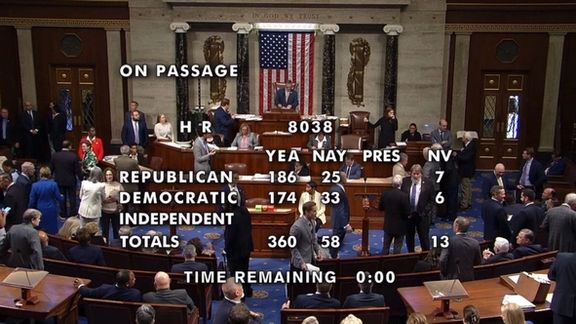
Sarah Raviani, a visiting fellow at NUFDI highlighted the bill's "overwhelming bipartisan support".
"We urge the Biden administration to make this determination and sanction the Islamic Republic leaders who are responsible for gross human rights abuses and for supporting terrorism that wreaks havoc across the entire Middle East," she said.
The MAHSA Act mandates sanctions on Iran’s Supreme Leader Ali Khamenei, his Office, his appointees, Iran’s president, and several entities affiliated with Khamenei. It also requires the US President to report to Congress annually on whether these officials should remain under existing sanctions, making it more challenging for current and future administrations to lift the sanctions unilaterally.
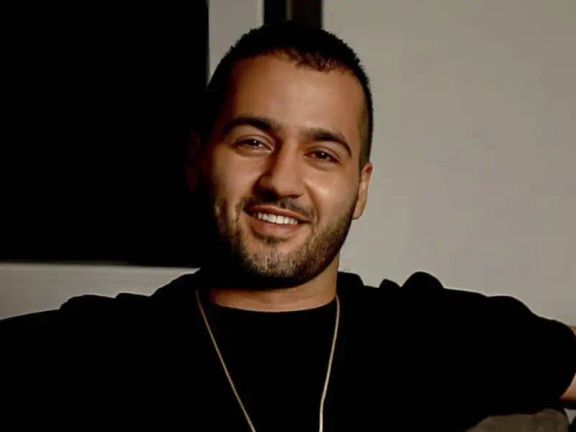
Doughty Street Chambers, Index on Censorship, and the Human Rights Foundation have jointly submitted a complaint to the United Nations Working Group on Arbitrary Detention (UNWGAD) regarding the ongoing detention and mistreatment of Iranian rapper Toomaj Salehi.
The complaint, submitted on behalf of Salehi's family, accuses the Iranian government of a disregard for international legal obligations and basic human rights.
Since his initial arrest in October 2022, Salehi has faced continuous harassment and shifting charges due to his outspoken music supporting the uprising of Iranian women in the Woman, Life, Freedom movement, and calling for greater freedoms.
"The authorities are abusing judicial procedures to attempt to silence him and keep him locked away," stated Caoilfhionn Gallagher KC, international counsel for Salehi’s family, Index on Censorship, and the Human Rights Foundation.
"Salehi’s continuing detention is arbitrary and unlawful. He should be immediately and unconditionally released."
Salehi has suffered physical torture, including a broken arm and leg, and has been held incommunicado for nearly 300 days without access to family or legal representation. Despite his brief release on bail in November 2023, he was rearrested shortly after and denied medical treatment for his injuries.
In April 2024, Salehi was sentenced to death for "corruption on earth," a charge stemming from his vocal criticism of the government after the death in morality police custody of Mahsa Amini. She was arrested for not wearing “proper” mandatory hijab.
Although the death sentence was overturned by Iran's Supreme Court on June 22, Salehi remains imprisoned, facing new charges of “propaganda against the system and insulting sacred values.”
The Iranian government’s use of arbitrary detention, torture, and executions to silence dissent is well-documented. Salehi's cousin, Arezou Eghbali Babadi, condemned the authorities' tactics.
"Despite the overturning of Toomaj's death sentence, authorities aim to keep him imprisoned long-term," he said. "These actions are part of an ongoing strategy of targeting the innocent lives of all Iranians fighting for democracy and justice."
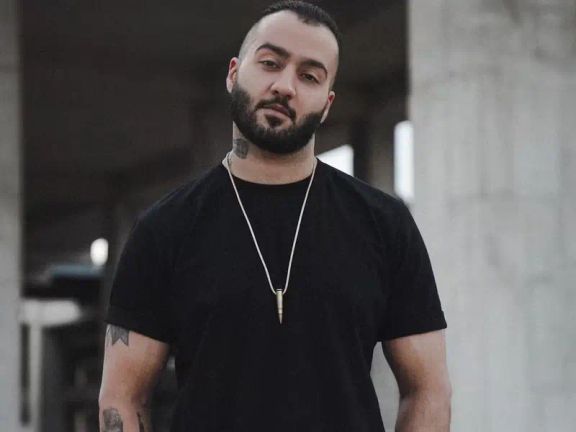
Negin Niknaam, Salehi's friend and social media manager, accused the government of "fabricating cases and making baseless charges" against the musician.
"Since the Islamic Republic was unable to execute him [Salehi] following global outrage, it is now attempting to keep him in prison or pressuring him into silence," he said.
Jemimah Steinfeld, CEO of Index on Censorship, appealed to Iran's new president, positioned as a moderate, to act: "The ongoing persecution of Toomaj Salehi is a stain on Iran. These new charges and the ill treatment he has received are an affront to basic human rights. We implore him to free Toomaj Salehi and indeed all others wrongfully imprisoned for exercising their free speech rights."
Legal experts have highlighted the crackdowns on freedom of expression since the uprising began in 2022, which has included the arrest of artists from musicians, actors and film makers, in addition to a plethora of other professionals and activists.
"Art is a human right, and supporting gender equality is not a crime," said Claudia Bennett, a legal and programs officer at the Human Rights Foundation.
An icon of the protest movement which has seen tens of thousands of dissidents jailed and last year alone, over 850 executions, she said Salehi has been made an example of amid the uprising.
"The Iranian regime knows the impact he has on the Iranian people and is willing to do whatever it takes to keep him in detention. But enough is enough," she added.
The complaint to the UNWGAD follows an Urgent Appeal filed with two United Nations Special Rapporteurs on behalf of Salehi's family.
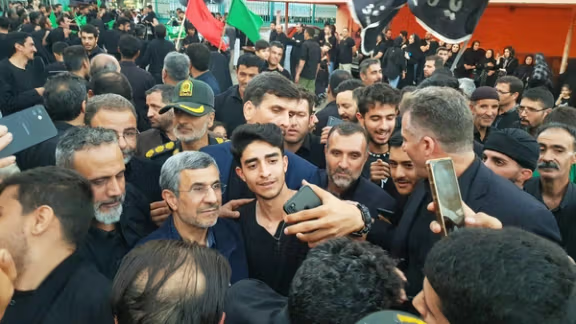
Iran’s former president, Mahmoud Ahmadinejad, narrowly escaped an assassination attempt last week after his vehicle was sabotaged, according to Iran International sources familiar with the incident.
On the evening of Monday, July 15, Ahmadinejad and his entourage prepared to travel to Zanjan for the Muharram religious mourning ceremony. Following a routine procedure, his chief security officer inspected Ahmadinejad's primary vehicle, a Toyota Land Cruiser, and complained about the still-malfunctioning air conditioner, requesting Ahmadinejad to use another car.
According to Iran International sources, approximately a quarter of the way along the Karaj-Qazvin Highway, the driver of the Toyota Land Cruiser carrying Ahmadinejad's associates and bodyguards suddenly lost control of both the steering and brakes.
The out-of-control Toyota spun three times in high-speed traffic, veered left and right twice, hit the central barrier, and collided with another vehicle in Ahmadinejad's convoy. It then struck the barrier again before stopping after hitting a Peugeot car.
A passenger in the Peugeot sustained injuries and was transported to the hospital. Fortunately, the injuries were minor, and the individual was discharged after outpatient treatment.
Two days before the trip, Ahmadinejad's security team had submitted his primary vehicle, the Toyota Land Cruiser, to the relevant unit within the presidential institution for repairs due to a malfunctioning air conditioner.
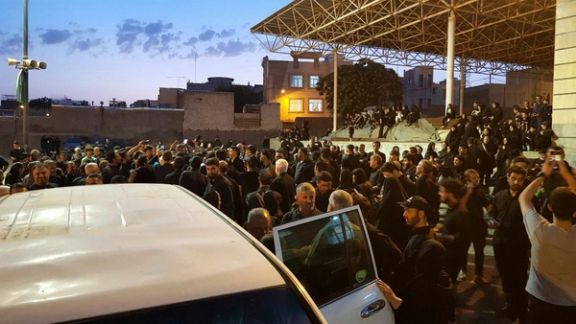
According to Iran International sources, after being handed over to the presidential institution, Ahmadinejad's Toyota Land Cruiser was seized by "special security agents" and taken to an undisclosed location instead of the usual repair shop.
Sources told Iran International that the vehicle was sabotaged before being returned to Ahmadinejad's security team, with the false claim that the air conditioner had been repaired.
Security team members protecting high-ranking officials, including Ahmadinejad, are a unit within the IRGC, known as the Ansar-al-Mahdi Protection Corps. This corps is a subset of the IRGC Intelligence Protection Organization, currently led by Brigadier General Fathollah Jomeiri, who also commands the Ansar-al-Mahdi Protection Corps.
Iran International sources did not specify which organization the "special security agents" who took the car away belonged to. However, given the organizational structure, high-ranking members of one of three IRGC subdivisions—the IRGC Intelligence Organization, the IRGC Protection and Intelligence Organization, or the IRGC Vali-e-Amr Corps—have the authority to retrieve Ahmadinejad's vehicle from the presidential repair unit without coordinating with the Ansar Protection Corps and without raising security concerns, enabling them to carry out the alleged sabotage.
Ahmadinejad registered to run in this year's presidential election, but the Guardian Council, an unelected body, disqualified him. He did not support any candidates.
Reports from Iranian websites, including Ahmadinejad’s affiliated Dolat Bahar, show that he traveled to Zanjan in July, with numerous images documenting his presence during the mourning sessions. He can be seen in a white Toyota Land Cruiser, which differs from the primary vehicle involved in the accident.
According to Iran International’s sources, five days after the failed assassination attempt, Ahmadinejad's office notified the "responsible authorities" about the incident and lodged complaints regarding previous attacks.
There have been prior indications of attempts on his life.
Last year, Dolat Bahar's Telegram channel reported that Ahmadinejad’s office had sent a letter to senior military and security officials, warning of concerning activities targeting him and requesting protective measures and action against those responsible.
In 2023, Ahmad Alirezabeigi, a lawmaker from Tabriz, revealed to Didban Iran (Iran Monitor) website in Tehran that members of former President Ahmadinejad's office have persistently maintained a heightened state of vigilance concerning potential threats against him.
In March 2021, domestic media reported that Ahmadinejad, in response to a query, declared, "The threat of my assassination is genuine. They would orchestrate my death, conduct the mourning rituals, and subsequently blame others. I have documented my information and secured it in several safe locations."
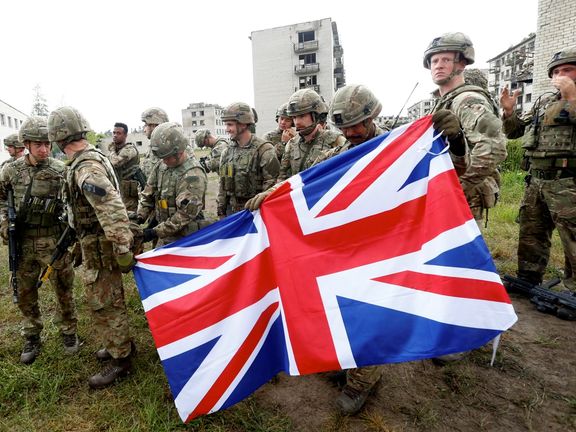
The chief of Britain’s army has warned that within three years, its forces must be ready to confront an "axis of upheaval" formed by Russia, China, Iran, and North Korea.
General Roly Walker has identified three primary threats including China's preparations to potentially invade Taiwan. Referencing US intelligence, he said there are indications that China’s President Xi Jinping has directed the country’s military to prepare for a potential invasion of Taiwan by 2027.
Iran's possible pursuit of nuclear weapons and Russia's ongoing militarization exemplified by its actions in Ukraine are additional threats.
He expressed concerns that Iran might seek to violate the nuclear agreement designed to prevent it from developing atomic weapons, all while the conflict in Ukraine continues.
The British general explained that these nations are cultivating a mutual alliance characterized by exchanging weapons and technologies and warned that this convergence of threats could reach a critical juncture by 2027.
While emphasizing that conflict is not unavoidable, Walker forewarned that Russian President Vladimir Putin would likely emerge from the invasion of Ukraine as "very, very dangerous" and "seeking retribution" against nations such as the UK that supported Ukrainian forces, regardless of the war's outcome.
Both Iran and North Korea have bolstered Russia's efforts in the Ukraine conflict. Since mid-2022, Iran has supplied Russia with over a thousand Shahed UAVs which have been extensively deployed to target civilian infrastructure and urban areas in Ukraine.
In 2019, Iran commenced annual trilateral naval exercises with Russia and China in the Arabian Sea, with the latest occurring in March. Furthermore, in 2021, Iran and China formalized a 25-year cooperation agreement wherein Beijing committed $400 billion (£309 billion) to invigorate Iran's economy by developing its energy, transportation, and manufacturing sectors in return for discounted Iranian oil.